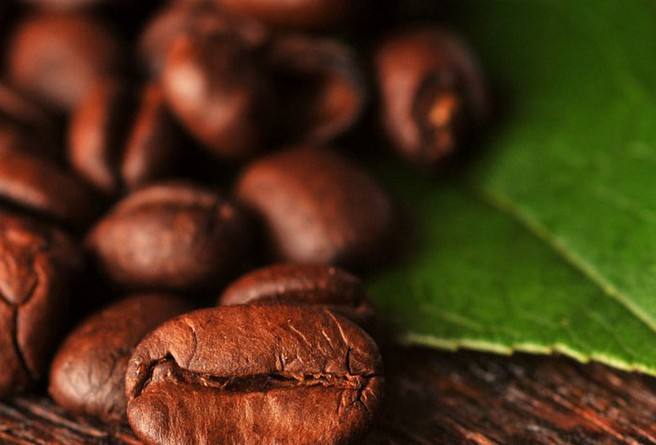Yemeni mocha coffee history introduction, Yemeni mocha coffee shell brewing tea
Follow the caf é (Wechat official account vdailycom) and found that Beautiful Cafe opened a small shop of its own.
Coffee is one of the traditional agricultural products in Yemen, which has been famous all over the world for its unique flavor since ancient times. the origin of many coffees in the world is in Yemen, thanks to the special geographical location of Yemen. In Yemen, coffee grows mainly between 1000 and 1700 metres above sea level, and is grown everywhere from the plateau to high mountain terraces and valleys, particularly in the western mountains, where coffee trees are planted at a rate of 1000 to 1000 trees per hectare and coffee production rates are 300,600kg per hectare. Coffee from different regions has different qualities. In the past, Yemenis invested heavily in coffee cultivation and trade, and "mocha" coffee used to be the largest export at the port. According to the Ministry of Agriculture, Yemeni coffee production was 7000 tons in 1997, 13000 tons in 2002 and 19000 tons in 2009, with an export value of 2.7 billion rials (about US $13.4 million).

Today, many cafes in Yemen are filled with a variety of modern drinks, many wealthy Yemenis also ignore national products, are not interested in traditional coffee, and even many former cafes no longer serve coffee. In addition, Carter, who has grown a lot in recent years, has also become the "natural enemy" of Yemeni coffee. The planting area of coffee is decreasing, while Carter trees are spread all over the country, mainly compared with coffee. Carter consumer groups in Yemen are huge, and for growers, it is much more profitable.
Yemeni mocha coffee shell tea
It was not until 1500 AD that there was sporadic Arab literature: between 1400 and 1500, the Yemeni ports of Moka and Aden suddenly became popular to drink a hot drink called "Kashu". The so-called "Ka Xu" means to pick the red coffee fruit, dry it and use only the pulp, while the coffee beans in it are discarded. The dried coffee pulp is then put into a pottery plate, mashed and then boiled in hot water to drink while it is hot. The pulp still contains 1% caffeine, has a refreshing effect, and the flavor is far sweeter than chewing coffee leaves, so it quickly spread throughout the Arabian Peninsula. Why did the early caf é discard coffee beans? It may be that raw beans are so hard and bitter that they are discarded (it was not until 1500 years later that coffee beans were regarded as treasures by the Turks). However, the light roasting of the sun-dried coffee flesh can improve the caramelized flavor of the sugar in the pulp, which is suitable for both hot and cold after brewing. It can be called the "Coca-Cola" of medieval Arabia and is very popular (but the modern version of Ka Xu is seasoned with coffee beans). The flavor of Kashi is lighter, less of the strong aroma of coffee, but it has evolved from chewing to brewing, and it is getting closer and closer to coffee drinks. Now the industry has a term for this drink called Cascara tea.
Arab "Coke", which prevailed after 1400 years, is still the national drink of Yemen, but the formula has changed a lot. In the early days, casseroles were made from lightly roasted sun-dried coffee, but after hundreds of years of improvement, they have now become a seasoned drink. There are both ancient and modern versions of Kashi currently drunk in Yemen or the Arabian Peninsula. The ancient version of Ka Xu still does not add coffee powder, only sun-dried pulp, gently roasted and mashed, add cardamom, cinnamon and other spices to boil in hot water. Put it cool in a bottle and it becomes a fleshy tea or an old Arabian cola, which tastes like spice tea and is regarded by Yemenis as morning and afternoon tea. The modern version of Kashi adds spices such as finely ground coffee powder, minced ginger and cinnamon, which is similar to Turkish coffee and tastes more like ginger coffee, which people may not be used to drinking.
When you go sightseeing in Yemen, it is hard to believe that this is an ancient country of coffee. The streets are full of people who chew on cart grass or drink kat tea and coffee, while few people drink coffee. Only the rich can afford mocha coffee, while the poor have to make tea with coffee pulp, which is amazing.
Important Notice :
前街咖啡 FrontStreet Coffee has moved to new addredd:
FrontStreet Coffee Address: 315,Donghua East Road,GuangZhou
Tel:020 38364473
- Prev

Yemeni mocha coffee flavor characteristics, Yemeni mocha coffee scientific drinking method
Following Cafe Review (Wechat official account vdailycom) found that Beautiful Cafe opened a small shop of its own flavor characteristics: spicy, unique flavor, slightly alcoholic flavor. When many people hear the name mocha coffee machine, they always think of the fancy coffee mixed with hot chocolate sold in the cafe, but as a kind of single coffee, Yemeni mocha has a unique charm.
- Next

Chinese coffee looks at Yunnan, how to develop Yunnan coffee beans
Following Kaiping (official Wechat account vdailycom) found that Beautiful Cafe opened a small shop of its own. Yunnan was one of the first provinces in China to grow coffee. At the end of the 19th century, missionaries from Europe went to Yunnan Dali and other places to preach, bringing coffee seeds to Yunnan. In the early stage after liberation, the trial planting of Lujiangba in Baoshan was successful, and it was found that it had good adaptability and good quality.
Related
- Detailed explanation of Jadeite planting Land in Panamanian Jadeite Manor introduction to the grading system of Jadeite competitive bidding, Red bid, Green bid and Rose Summer
- Story of Coffee planting in Brenka region of Costa Rica Stonehenge Manor anaerobic heavy honey treatment of flavor mouth
- What's on the barrel of Blue Mountain Coffee beans?
- Can American coffee also pull flowers? How to use hot American style to pull out a good-looking pattern?
- Can you make a cold extract with coffee beans? What is the right proportion for cold-extracted coffee formula?
- Indonesian PWN Gold Mandrine Coffee Origin Features Flavor How to Chong? Mandolin coffee is American.
- A brief introduction to the flavor characteristics of Brazilian yellow bourbon coffee beans
- What is the effect of different water quality on the flavor of cold-extracted coffee? What kind of water is best for brewing coffee?
- Why do you think of Rose Summer whenever you mention Panamanian coffee?
- Introduction to the characteristics of authentic blue mountain coffee bean producing areas? What is the CIB Coffee Authority in Jamaica?

